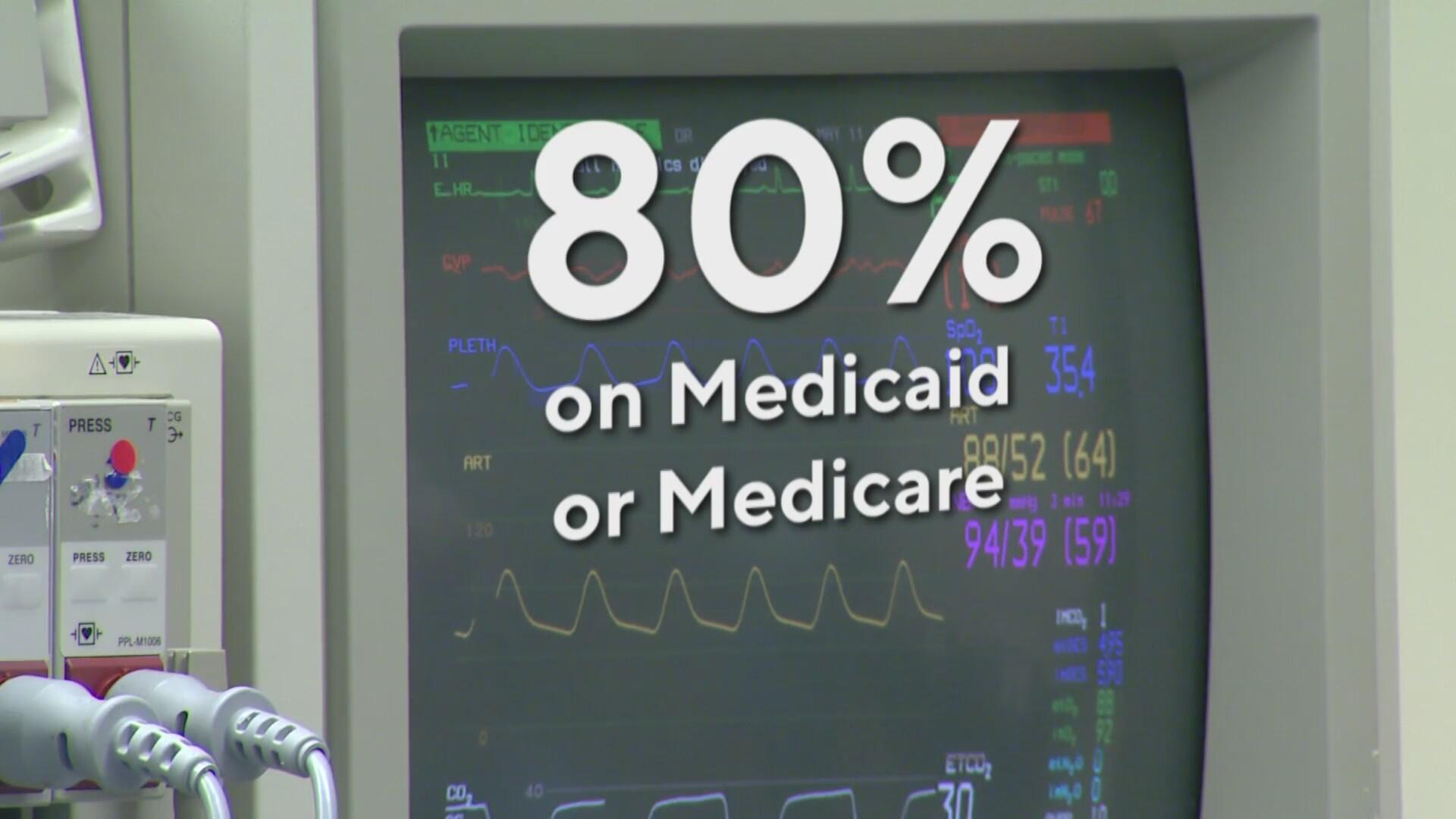State of Colorado says Republican budget bill will cut billions in federal funding for Medicaid in the state
Colorado is expected to lose up to $2.5 billion annually in federal Medicaid funding under the Republican Party's massive tax and spending cuts bill.
The measure passed the U.S. Senate Tuesday after Vice President JD Vance cast the tie-breaking vote.
It would extend Republican 2017 tax cuts permanently, increase funding for defense and immigration enforcement and cut funding for Medicaid, food stamps and green energy programs.
The Congressional Budget Office estimates it would increase the deficit by about $3 trillion over ten years. The bill now goes back to the U.S. House of Representatives for approval.
Among the differences between the Senate and House versions are changes to Medicaid, which provides health coverage for one in four Coloradans.
The Congressional Budget Office says the Senate bill will reduce spending on Medicaid by nearly $1 trillion over the next decade, and maybe nowhere will those cuts be felt more than in rural Colorado, where half of all hospitals are already operating in the red.
Lincoln Health in Hugo is among them. It is the only hospital on the I-70 corridor for 160 miles. The survival of those who live in the area depends on the survival of the hospital, which also operates family practice clinics, a nursing home and assisted living center.
CEO Kevin Stansbury says those services are at risk under the bill.
"We will have to close down some services," Stansbury told CBS Colorado. "And the challenge will be what services are not essential."
Stansbury says 80% of the patients at Lincoln Health are on Medicaid or Medicare.
The Colorado Department of Health Care Policy and Financing (HCPF) -- which administers Medicaid -- says the bill would mean a loss of between $900 million and $2.5 billion a year in federal funding for Medicaid. It says the state would lose another $550 million a year due to a provision that caps a fee many states assess on hospitals at 3.5%.
The bill also creates new verification requirements that HCPF says could cost the state $57 million to administer. It says the red tape will also result in thousands of Coloradans losing coverage. The bill requires recipients to provide proof they're going to school, volunteering, or working every month, and provide proof of their income and citizenship every six months.
Stansbury says some recipients in Lincoln County don't have internet and will need to travel 80 miles to Fort Morgan to re-certify in person. He says many will drop off the rolls and end up uninsured.
"Our patients have to travel to Fort Morgan for in-person revalidation of their Medicaid," Stansbury explained. "You're cutting access to care, which ironically could drive up the cost of care and put more financial stress on hospitals."
Stansbury says Lincoln Health expects to lose about 25% of its Medicaid reimbursement under the bill. While it creates a new $50 billion rural hospital fund, he says it's unclear who would qualify for the money and how it would be distributed.
"Where you live shouldn't determine if you live," Stansbury said.
He notes many of the people who live in Lincoln County are conservatives.
"I'm not sure that's what people out here voted for," Stansbury said. "I don't think they voted to have their hospital decimated."
Lincoln Health may have to scale back services, but Stansbury says the hospital will survive.
"This is a mission for us, and we're going to stick here. We're going to provide care to our patients," Stansbury said. "All we're asking is that we get paid equitably for it."
The Senate dropped a provision in the House bill that would have cut federal Medicaid funding by 10% in states like Colorado that use their own tax dollars to cover Medicaid for non-citizens.
The bill could also impact Medicare reimbursement. Because it adds to the deficit, it triggers the "Pay As You Go Act," which makes automatic cuts to federal spending. Medicare reimbursement could drop by an estimated 4%.
Stansbury says rural hospitals are not only underpaid by Medicaid and Medicare, but by commercial insurers. He says Lincoln Health receives 100% less reimbursement from commercial carriers than hospitals in the Denver metro area.
Both the Senate and House bills allow a subsidy program enacted during the COVID-19 pandemic to expire at the end of the year. It caps premiums for those who buy insurance on the Health Exchange at 8.5% of a household's income. People who live in rural or mountain communities could see their premiums double.






